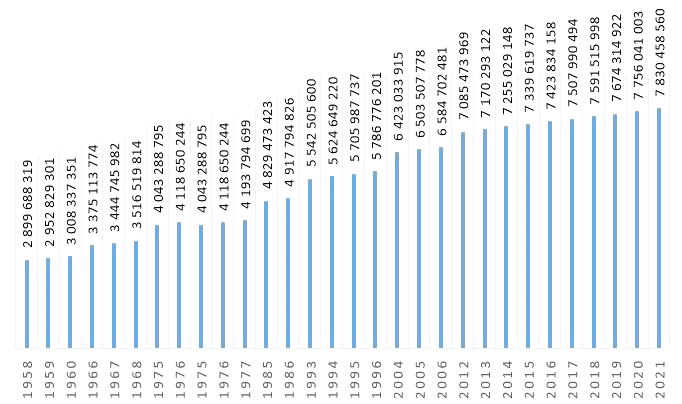Social and Environmental Responsibility in the Age of Coronavirus
Our clients and friends often ask us how cybersecurity experts feel about what is happening in the world today. How to understand the diversity of opinions and identify the ‘beacons’ of real, deep knowledge that will help not only survive and find a ‘fairway’ in the turbulent currents of modern events, but also fill our lives with meaning and energy, gain strength and resources for great things.
Our worldview and opinion on the relationship between man, society, and nature are described on the page about our social responsibility. Our corporate culture seeks to implement these views, among other principles and values. In this article we continue this topic, sharing our opinions on current developments and predictions for the future.
First of all, we see that the COVID-19 epidemic and quarantines have significantly affected the IT world. Remote working and the use of home IT infrastructures have changed the threat landscape, the attack surface, and the vulnerability profile.
We have recently written about securing home routers and protecting against social engineering. Any info events, and even more so global ones, have always been a fertile breeding ground for information viruses, botnets, spam, phishing, disinformation, and other threats. Coronavirus is no exception.
Moreover, the world has changed irrevocably and will never be the same, even if humanity soon succeeds in defeating the coronavirus. COVID-19 is the first, but not the last virus that not only caused an epidemic but also a bulk of mutually contradictory information flows, the so-called ‘infodemic’. Is it only a negative phenomenon?
Does a virus have the right to live? We firmly believe that it does, even though many modern scientists do not consider viruses to be a life form at all, but only a program that uses and modifies other life forms. Even if viruses possess not life but some other form of existence, that is not the point.
In terms of molecular biology, humans are not much different from an elephant, a fly, a fungus, or a bacterium. All these forms of existence are based on DNA molecules that behave in the same way, similarly using resources to develop, multiply, gain new functions and capabilities.
According to modern scientific concepts, viruses appeared, presumably, in the RNA world. That is, the virus as a form of existence appeared before the bacterium, our distant relative.
The RNA world appeared 3-4 billion years ago, almost immediately after the Earth had formed. So, maybe it was not the virus who came to us, but vice versa, we are aliens for that first life form that had existed perfectly well before us?
The fun part is that any DNA molecule is largely formed by viruses. That is, we are actually created by viruses. This fact alone already makes viruses worthy of respect. Whoever created viruses, either nature or aliens, or the Creator, this is a smart idea. Viruses are one of the key tools controlling gene mutations as the most important mechanism of evolution.
Based on the above, viruses are almighty. Therefore, the answer to the question “does the virus want to kill us?” is simple: if it wanted to kill us, it would have done so long ago.
If our life forms have cohabited with viruses for billions of years, then it makes sense to realise our complementary roles in this symbiosis. For example, viruses, as the architects of evolution, allow us to become stronger, as well as smarter, and we pay them in return with our cell resources. Sometimes we overpay and die. So maybe it makes sense not to overpay and grow wiser “in advance” or at least “on credit”?
Surely, the strain on the healthcare system and the concerns of all countries’ governments have increased. At the same time, the situation is not yet so critical that it would somehow impact the population of the planet, even though the media rhetoric can sometimes make it seem that we are on the brink of the apocalypse. The quantity of the world’s population in recent years is shown in the chart below.

The situation with infodemiс and informational viruses is similar to that with biological viruses. Both exist, evolve, and may interfere with life, but they should not be overestimated.
With the arrival or disappearance of epidemics or infodemics, what exactly has changed and will change in life, for example, of an ordinary farmer, who lives in the middle of nowhere? He will continue to work and with his labour help his family and his clients.
Philosophically speaking, a long time ago the man chose, so to speak, the path of “knowing good and evil” instead of accepting everything as a given. For this reason, we experience discomfort over small things. For instance, when we get a stain on our shoes, when someone did not say hello, or when we miss the train.
One may or may not accept these or those events and news that enter our lives. However, in the end, the winner is the one who has the habit of thinking “can this event benefit me?” And if not, then just forgets about it, retaining the basic state of “keeping calm”. Today such a model of behaviour should be the main way of dealing with infodemic and other information rubbish if one wants to develop effectively.
Does one need to get vaccinated? Unfortunately, or fortunately, it so happened over the past couple of thousand years that humans have created “crutches” for themselves and cannot do without them. These are transport, mechanisms, tools, computers, gadgets, etc.
The entire life of a modern human is permeated with artificial devices and technology. They have reached the human immune system as well, the natural part of which is no longer satisfactory. Vaccines are “crutches” for the immune system or its training.
Probably not all vaccines are equally beneficial. Most likely, there were, are, and will be side effects. However, having analyzed the mass of criticism and the polarised views, we believe that the rational opinions in favour of vaccination prevail.
We endorse vaccination against coronavirus in the short term, but we do not believe that vaccines can be relied on in the term of decades. It so happens, humanity is facing tricky new viruses and infodemics that develop and act very quickly. Much faster than vaccine manufacturers manage to test their products.
The history and nature of our interaction with viruses suggest that they will never be defeated. Defeating them is not only impossible but also pointless. One must learn to respect them and live with them.
Therefore, vaccination alone is not enough. One needs a conscious attitude towards oneself, one’s place in society and nature. In terms of our business, this is what is called sustainability or sustainable development.

We believe that in a strategic perspective only nature can teach us how to live properly, train our immunity in a natural way and stay healthy as long as possible. However, there is a price to pay for everything. How can we repay Nature for this knowledge? What can we give it in return?
Stop consumer aggression, get along with only the most necessary things, give up plastic, sort waste, save resources. These are common truths that humanity has not been paying enough attention to. Perhaps that is why nature gave us a mild warning blow in the form of coronavirus.
What is the point of waiting for the next blow, which will surely be stronger? Is it not time to remember, or at least assume, that we are guests on this planet of viruses, but not hosts?
Finally, we believe that helping the weak is the most important factor in sustainable harmonious development and security. If you are a physically healthy man and especially with a family, no matter how much you earn, you will always need more. This is how people are wired.
On the other hand, no matter how little you earn, you will never become poorer if you give, for example, a tenth of your income to strangers in need, especially to parentless children or the elderly, if you are still a physically healthy man. Your commitment to helping the weak is your contract with a very large, invisible firm called Sustainability. That is how charity as a special kind of investment activity works.
There are a lot of nuances and questions in the path of philanthropy. How can you find those who need help the most? How can you make sure that help actually reaches the recipient? Why should you ensure your anonymity when giving to charity, ultimately so that your left hand wouldn’t know what your right one is doing? Would not the help be a disservice to someone who is being challenged to change something in themselves? Experience shows that those who find the answers to these questions within themselves and continue to help, find more and more resources to do so over the years.
The winter holidays are a good time to think about those who lack warmth in every way. The earth is round and if you create a miracle for someone, then you are surprised by the miracles in your life.
The success of evolution is not determined by the number of resources exploited by an entity, but by the number of healthy offspring it leaves behind. In this respect, we will be happy if our ideas and notions sprout in your minds and give birth to your own ideas and solutions related to harmonious sustainable development in the new conditions that epidemics and infodemics are giving us.
Epidemics and infodemics are neither good nor bad. It is simply a new reality that must be understood, accepted, and taken into account when planning one’s own destiny, work, business, projects, and other endeavours.
